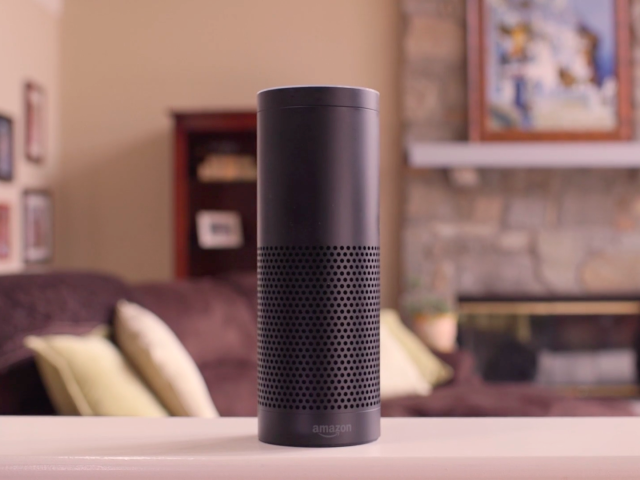
This article is more than
8 year oldAmazon, Google, and Apple are in the early stages of an epic war for your home — and a new $20 (£15) gadget may give Amazon a crucial upper hand.
One of the hottest areas in tech right now is the world of AI-powered virtual assistants. These voice-controlled bots can manage your schedule, tell you the news, play music, control your heating and lights, and order you food.
Originally available only in smartphones or smart speakers like the Amazon Echo and the Google Home, they're now rapidly invading every device and home appliance they can get their hands on, from fridges to cars.

AmazonAnd that's where the Amazon Dash Wand comes in. First launched in 2014, it's a handheld barcode scanner that you can use to add things to your Amazon shopping cart at home. Low on mayo? Just scan the jar to get the same again! And this week, Amazon announced a new version — one that comes with Alexa, its AI assistant, built in.
Thus far, AI assistant-enabled devices have never been particularly budget-friendly. The Amazon Echo goes for $139.99, (£149.99 in the UK) while Google Home, which houses the Google Assistant, is $129 (£129 in the UK). Apple's upcoming HomePod speaker is even pricier — it will sell for $349 when it launches later this year. (It's not clear what it'll cost in the UK.)
The cheapest option seems to have been the Echo Dot, which goes for $49.99 (£44.99). But the Dash Wand with Alexa is far cheaper. It sells for $20 (there's no word about a UK launch date or pricing yet), and comes with $20 Amazon credit, making it essentially free — and radically undercutting the competition.

AmazonRight now, this is still early, early days when it comes to AI assistants in the home. What they can do is still pretty limited, and the vast majority of people still don't have one. But consumer adoption over the next year or so is crucial.
Say you decide you want to try out an AI assistant. You buy the Dash Wand, because why not, it's basically free. And you like it, so you go for an Amazon Echo. Then you pick some Alexa-enabled lightbulbs, and realise it makes your life far easier. Then you buy an Alexa-enabled washing machine. And a fridge. And a car.
AI assistants are not like smartphones, which people tend to replace every one-to-two years, giving them a clear window to switch platforms each time. Once a consumer is locked into a virtual assistant ecosystem, they're much less likely to change down the line — because it might mean re-outfitting your entire home.
After all, the promise of virtual assistants is that they work seamlessly across devices to help organise and streamline your life. No one wants to use Alexa in the kitchen then have to switch to Google Assistant in the living room. On a practical level, the uninterrupted experience is great for consumers — but it ties them in more tightly to a single tech company’s ecosystem than ever before.
And that is Amazon's play here with the new Echo Dash: It's a crucial first step into that ecosystem. It opens up Alexa to the tech-cautious and budget-conscious — demographics that the current offerings from Google or Apple have no chance of hitting.
It may only be $20, but it could be dictating consumers' brand loyalty and spending habits for years to come.
NOW WATCH: Your steak isn’t leaking blood — here’s what that red liquid really is
See Also: